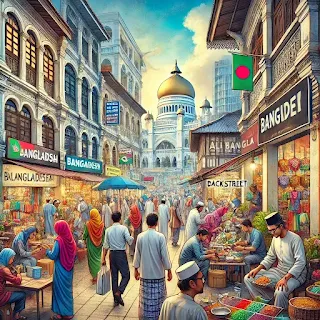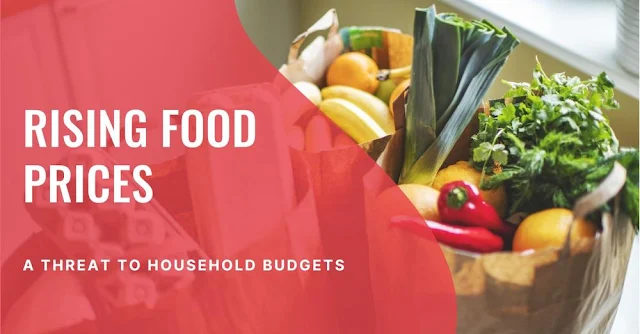As Brunei races toward its Wawasan 2035 vision, are we too focused on economic growth while ignoring deeper challenges that threaten our future? Beneath the surface of progress lies a hidden iceberg of social issues—poverty, corruption, and rising crime—that could derail the nation’s ambitions. Can the spiritual and ethical foundations of *Melayu Islam Beraja* and *Negara Zikir* guide Brunei toward a more balanced and just society, or will we miss the mark on genuine development? Explore the complexities of Brunei's future in this analysis. MHO
BANDAR SERI BEGAWAN, SEPTEMBER 2024: As Brunei forges ahead with its Wawasan 2035 vision, the nation’s path to sustainable progress rests on two fundamental concepts: Melayu Islam Beraja (MIB) and Negara Zikir.
These guiding philosophies aim to balance the country’s spiritual and material development.
However, the journey toward achieving this ambitious vision is fraught with challenges. From rising crime, unemployment, and mental health issues to deep-seated problems like poverty and corruption, Brunei faces a reality that necessitates more than just economic growth to achieve national success.
A recent analysis from the Fakulti Usuluddin at Universiti Islam Sultan Sharif Ali, led by Rasinah Ahim, emphasises the importance of Negara Zikir as a philosophy that not only strengthens national stability but also reinforces the principles of MIB in governance.
Yet, challenges in translating these ideals into practical policies become apparent as Brunei confronts social, economic, and administrative hurdles.
The central question emerges: how effectively have MIB and Negara Zikir been integrated into governance and policy to address Brunei's pressing social issues?
An Iceberg of Challenges: Beyond Economic Metrics
In a decade-old video recording from a workshop on Wawasan 2035, a Bruneian government official offered a striking analogy, comparing the vision to an iceberg.
The visible tip represents Brunei's economic ambitions—GDP growth and infrastructure development—but beneath the surface lie the more profound challenges of governance, societal well-being, and spiritual alignment with Islamic values.
The official, who had only recently learned about these concepts despite not being Muslim, questioned whether Brunei's focus on economic metrics overshadowed the deeper values of Maqasid Syariah.
This Islamic governance framework emphasises the protection of five essential elements: faith (din), life (nafs), intellect (aql), lineage (nasl), and wealth (mal).
His reflections remain relevant today, as these core elements are critical to ensuring the holistic development of a nation beyond mere financial prosperity.
For example, Brunei’s growing social issues—such as rising divorce rates, poverty, school dropouts, and unemployment—signal that the balance between material progress and societal well-being remains off-kilter.
Divorce rates alone surged from 588 in 2022 to 735 in 2023, underscoring the stress on families and raising questions about the protection of lineage (nasl), a key goal of Maqasid Syariah.
Meanwhile, school dropouts and mental health issues among youth suggest gaps in safeguarding intellect (aql).
Measuring Progress: Is GDP the Right Metric?
One of the key insights from the video and other reflections on Brunei’s development is the question of whether GDP is an adequate measure of national progress.
The official noted that Bhutan, a small Himalayan nation, has adopted a different approach: using a Happiness Index to measure success rather than GDP alone.
This index focuses on the well-being and happiness of its citizens, ensuring that economic growth does not come at the cost of social and spiritual fulfilment.
Bhutan’s Gross National Happiness (GNH) index measures nine domains: psychological well-being, health, education, time use, cultural diversity, good governance, community vitality, ecological diversity, and living standards.
This holistic approach ensures that national policies serve not only economic needs but also cultural, environmental, and social objectives.
Similarly, Brunei’s guiding principles, particularly those embedded in Negara Zikir and MIB, offer an opportunity to rethink how the country measures its success.
As Rasinah Ahim’s paper suggests, Brunei’s focus should be on developing a “Zikir Nation” where spiritual and material well-being is balanced.
This philosophy calls for a holistic view of progress—one that goes beyond the surface of economic development and delves deeper into the nation's core values of Islamic ethics, environmental stewardship, and social harmony.
Corruption and Governance: A Tarnished Administration
Compounding Brunei’s challenges is the issue of corruption within its administration.
Despite ranking second in the ASEAN region in corruption indices—behind only Singapore—Brunei has not escaped the negative impact of corruption.
Since the Anti-Corruption Bureau (ACB) was established in 1982, 2,469 cases of alleged corruption have been investigated, leading to 284 individuals being brought to court and 231 convicted of offences such as bribery, criminal breach of trust, and submitting false financial claims.
Beyond criminal charges, 260 public servants have faced administrative punishments for abusing their positions for personal gain or favouritism.
These instances of corruption undermine public trust and stall the very policies that aim to build a prosperous and ethical nation.
Tackling corruption and the abuse of power is critical to realising the full potential of Wawasan 2035 and ensuring that it aligns with the country's spiritual aspirations.
Poverty: The Hidden Struggle in a Wealthy Nation
While Brunei is often perceived as a wealthy nation, the reality of poverty in the country presents a different picture. Brunei ranks 11th out of 78 countries in terms of the percentage of its population living in poverty, with a staggering 43.7% living below the poverty line.
In 2012, over 20,790 individuals, or more than 5% of the population, were reported to be living in poverty.
This stark reality highlights the gaps in Brunei's wealth distribution systems and raises questions about whether the nation’s policies, rooted in the principles of Negara Zikir and MIB, are being implemented effectively to address economic inequality.
Poverty, along with rising crime and unemployment, threatens the nation’s stability and contradicts the Maqasid goal of protecting wealth (mal).
Crime, Poverty, and Social Stability: An Emerging Concern
In addition to poverty, crime remains an issue that tests the resilience of Brunei's social fabric.
Data from the Royal Brunei Police Force and the Narcotics Control Bureau show fluctuating crime rates across categories. For instance, offences against persons—such as those harming individuals' physical or emotional well-being—reached 511 cases in 2023.
Meanwhile, property crimes, although reduced from a peak of 3,854 in 2014 to 1,105 in 2022, continue to present challenges.
More concerning is the rise in penal code offences, including cybercrime and fraud, which surged from 669 cases in 2012 to over 1,700 by 2023.
This reflects not only local challenges but also global trends in technology-driven crimes.
Drug-related offences have also seen a resurgence, with 2,161 cases reported in 2023, underscoring the need for stronger enforcement and rehabilitation efforts.
These crime trends, coupled with issues such as poverty, school dropouts, unemployment, and mental health challenges, test the stability that MIB and Negara Zikir aim to protect. They highlight the need for governance that not only addresses economic progress but also tackles the root causes of crime, corruption, and social instability.
Bridging the Gap: Policy and Implementation
The heart of the issue is not that Brunei lacks the values or philosophies to guide it forward.
MIB and Negara Zikir are well-established as cornerstones of the nation's governance framework.
However, the challenge lies in translating these ideals into actionable policies and implementing them effectively.
Inefficiencies in Brunei’s zakat management and welfare systems are key examples.
Zakat, designed to redistribute wealth and promote social equity, often fails to reach those most in need due to administrative delays.
Similarly, the welfare system, while well-structured, struggles to provide timely assistance to the vulnerable.
These systemic issues have persisted over the years, as highlighted in a 2020 workshop led by Professor Amin Abdul Aziz at Universiti Brunei Darussalam, where it was emphasised that execution, not philosophy, remains the primary challenge.
Additionally, strengthening oversight and improving transparency in these systems could help ensure that the principles of Maqasid Syariah—particularly the protection of wealth (*mal*) and the well-being of society—are fully realised.
Moving Forward: A Balanced Approach for Wawasan 2035
As Brunei continues its march toward Wawasan 2035, the nation must recalibrate its approach to balance spiritual well-being with material advancement.
The reflections of officials, captured on video a decade ago, remind us that the real mission lies not just in economic growth but in creating a just and equitable society that aligns with Brunei’s Islamic values.
Corruption must be rooted out, poverty alleviated, and social services strengthened to ensure that all citizens benefit from the nation’s development.
Only then can Brunei fulfil the true aspirations of Wawasan 2035, building a nation that is both prosperous and blessed with spiritual harmony.
Brunei’s future rests on its ability to bridge the gap between policy and practice, between tradition and modernity. To fully realise its vision, the nation must commit to strengthening its governance frameworks, prioritising the well-being of its people, and upholding the values that form the very foundation of its identity. (MHO/09/2024)
In a nutshell:
- Wawasan 2035 is Brunei’s goal for national prosperity, focusing on economic growth and development.
- The vision is built on Melayu Islam Beraja (MIB) and Negara Zikir, aiming to balance spiritual well-being, social harmony, and material advancement.
- However, Brunei faces challenges: rising crime, poverty, unemployment, school dropouts, and mental health issues.
- Corruption remains a critical issue, with over 2,469 cases investigated since 1982, undermining governance and public trust.
- The article questions whether GDP is the right measure for progress, suggesting that Brunei could benefit from adopting Bhutan’s Happiness Index to prioritise well-being and social equity.
- Maqasid Syariah offers a holistic framework for governance, focusing on the protection of faith, life, intellect, lineage, and wealth—essential for true progress.
- Zakat and welfare systems face inefficiencies, with delays and mismanagement preventing wealth redistribution from reaching those in need.
- To fulfil Wawasan 2035, Brunei must address corruption, improve governance, and ensure social harmony while balancing material and spiritual progress.



.jpeg)






